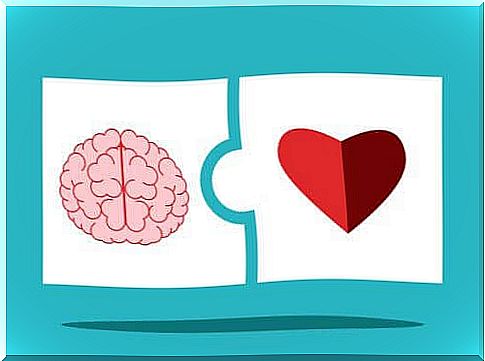Emotional Flexibility: The Key To Feeling Better

Sometimes trying to make sense of everything and organize even the smallest thing perfectly makes us a little rigid. What if we did it with our emotions too? We wouldn’t allow life to go by, so having emotional flexibility is important.
It consists of accepting not being able to achieve perfection, or even to set it aside so as not to carry so much tension. We thus give wings to ease, by designing a healthier environment and thus obtaining a better quality of life.
We invite you to be emotionally flexible. In the rest of this article, we’ll tell you what it is, how to achieve it and what the benefits are.
What does emotional flexibility mean?
It is the ability we have to adapt to emotional circumstances. It is therefore the ability to let our emotions run free and to tolerate change; it has to be done in different contexts.
In other words, it’s the art of emotionally adjusting to events as they happen. Also, it is difficult to practice and attain this skill as life is constantly changing and it can be overwhelming to systematically reject a good solution for the best.
However, it is possible. The important thing is to try to assert yourself so that our emotions always have room to breathe.

How do you achieve emotional flexibility?
There are several ways to increase emotional tolerance. If this is the path you want to take, we have a few strategies to help you:
- Let go to lighten the path: why cling to what hurts us? Leaving aside what is toxic to you frees us, and allows us to better adapt to the changes that lie ahead.
- Be aware that each emotion has its value: pushing them away is not healthy, because each has a function, each has an energy that we can nurture and a message that we can learn from
- Cultivate resilience : this is the ability to cope with problems. No matter how frustrated we are, we can turn those feelings into courage and effort, which will then be rewarded with great moments.
- Learn from the past: there are times when it is easy to lose control; if we learn from it, we can use this preventive teaching to warn us of what might happen if we follow the same steps
- Say goodbye to remorse: guilt wears us out and makes us stay in the past. While it is important to learn, it is not healthy to hold on to something that has already happened and cannot be changed.
- Embrace our fears: It is difficult not to be afraid because it is the most powerful part of our alarm system. So, instead of closing our eyes, that is to say pretending that they don’t exist, let’s embrace them, come into deep contact with them; knowing their origin will also allow us to know ourselves better
- Allow yourself things: it is about letting the emotions express themselves. Let them be, and live with them
- Cultivate healthy relationships: To do this, we must rely on our knowledge and our self-esteem. If we give ourselves courage and know what we are like, we can be more flexible and build relationships based on this ability. In addition, it is essential that we surround ourselves with non-toxic people, as this weakens our emotional flexibility.
- Exercise: for example, sport helps us to be more focused and to feel better thanks to the neurotransmitters and endorphins that we release in this way. And, art allows us to transform our anxieties into something pleasant
On the other hand, we must remember that we do not have all the answers. It is therefore essential that we also give space to the subjective, listening to the opinions of others. Their truth, in this sense, will always improve ours.
It is also important to remember that sometimes it is necessary to free yourself from emotional control. It’s okay to cry, scream, or laugh. By being irrational, we discover that the irrational and the contradictory are good for us. By assuming ourselves, dissonance will stop threatening us, claiming the right to actualize what we do or think to the present without anyone acquiring the right to judge us.
To have emotional flexibility, we also need to be connected to our thoughts and actions. For this, we can rely on various practices, for example: mindfulness and self-compassion.
In fact, Shadi Beshai, Jennifer L. Prentice and Vivian Huang, in an article entitled “ Building blocks of emotional flexibility: Trait Mindfulness and Self-Compassion Are Associated with Positive and Negative Mood Shifts ”, published in the journal Mindfulness , reveal the study in which they discovered that mindfulness and self-compassion act as protective agents against mood swings and relapses.

What are the benefits of emotional flexibility?
The advantages that we can derive from being emotionally flexible are, among others, the following:
- Greater self-awareness
- Increased self-esteem
- Better management of emotions
- The increase in our tolerance
- Greater attention span
- Increasing our self-compassion
- Improving our relationship with others, with ourselves and with the environment
- Improving our ability to make decisions.
- Constant learning
- A release of tension
- Increased capacity for resilience
- Decrease in toxic relationships and environments
In summary, emotional flexibility can be boiled down to the ability to assume that the range of emotions that can come over us is wide, almost always emanating from a mixture of emotions and not pure emotion.
So it has a lot to do with acceptance without judgment, with honesty with oneself, with emotional intelligence that connects us to the most primitive, and perhaps the richest, parts of our nature.
Cultivating it will help us view each emotion as unique and precious. It will also help us to know when to express it or not, and to transform moments of chaos into moments of harmony; in this way, we will move towards a better quality of life.










